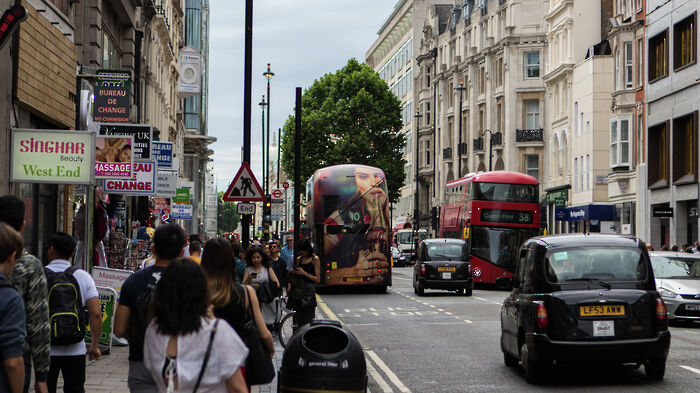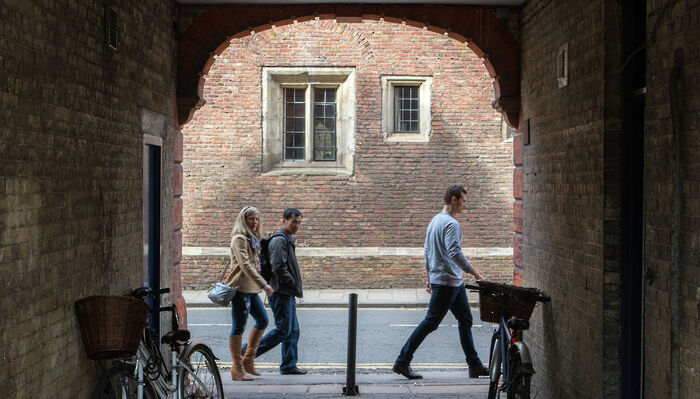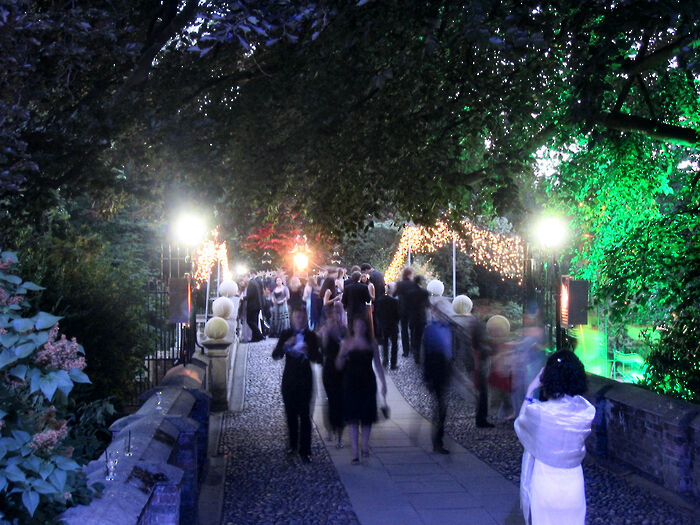Cambridge accepts more black men than Etonians for the first time on record
New admissions stats show increased diversity, but black undergraduate success rates are less than half the overall average

Cambridge’s latest undergraduate admissions statistics have been branded “disappointing but not surprising”, after they revealed continued disparities in success rates for different ethnicities.
Overall, representation of minority groups within the University, including BME, disabled and female students have increased once again, but new data for the October 2016 intake shows ethnic disparities in acceptance rates, and that an increasing proportion of students are coming from London and the South East.
An analysis of the last 10 years of admissions statistics by Varsity found that success rates for black applicants have consistently been far lower than average.
The number of black students – those who declared their ethnicity as ‘black or black British – Caribbean’, ‘black or black British – African’, or ‘other black background’ – who matriculated last year was a record high, up one to 39 from 2015’s stats.
For the first time on record, Cambridge accepted more black men than Etonians into undergraduate courses: 22 and 21 respectively. Another all-male private school, St Paul’s School, had 22 students accepted.
The number of black women accepted was 17, a drop from 2015’s figure of 23. Usually, more black women are accepted than black men, making last year’s figures a possible anomaly.
The proportion of successful applicants who have declared themselves as having a disability increased by 1% last year, to a total of 6.2%. The proportion of successful disabled applicants has been rising slowly but steadily since 2007. Cambridge once again accepted more men, 52%, than women, but the gap is closing.
Varsity has analysed admissions data for the past 10 years of intake cycles, and found that acceptance rates for black applicants have remained consistently low over the past decade – averaging less than half the overall rate.
Bangladeshi and Pakistani applicants from the UK have also had below-average success rates, though these can be attributed in part to low sample sizes, meaning that rates can fluctuate significantly year on year.
The success rate for applicants from mixed black backgrounds – those who described themselves as ‘mixed white and black Caribbean’ or ‘mixed white and black African’, which Cambridge has measured since 2010 – was consistently higher than that of other black applicants over the years examined.
Success rates among individual categories of black applicants can fluctuate dramatically year on year, partially due to low numbers.
In April, photographs of fourteen black male undergraduates went viral on social media after being posted on Facebook by Cambridge University African-Caribbean Society (ACS). The caption accompanying the photos, which were part of an effort to “capture just some of the black men who contribute to one of the world’s most innovative intellectual spaces”, highlighted the fact that only 15 black men were accepted into Cambridge in 2015.

The post has received almost 6,000 likes, and was covered by national media organisations including the BBC, Channel 4, ITV, and BuzzFeed, prompting some criticism of the University’s access efforts.
The latest data shows the number of black men accepted has increased to its highest recorded level, alongside a drop in black women being accepted.
CUSU’s new access officer, Olivia Hylton-Pennant, described the statistics as “disappointing but not surprising”.
“It’s important for prospective black students to feel as though Cambridge is somewhere that is open to them,” she told Varsity. “Something as simple as having the opportunity to come into contact with a black student can make a huge difference – I know from personal experience. That played a huge part in my decision to apply to Cambridge.”
A University spokesperson defended the figures, saying that Cambridge’s “admissions decisions are based on academic considerations alone”, and that the University aims to “widen participation while maintaining high academic standards.”
“The greatest barrier to participation at selective universities for students from disadvantaged backgrounds is low attainment at school” they said, adding “We currently spend £5m a year on access measures leading to 190,000 interactions with pupils and teachers. This includes focused work with BME students.”
“Widening participation further will require Government, schools, universities, charities, parents and students to work closely together.”
Increasing intake of students from more diverse ethnic and social backgrounds while maintaining academic standards has long been a challenge for Cambridge. There are a number of factors which make access additionally challenging: these include schools discouraging pupils from disadvantaged backgrounds from applying – a report released by educational charity the Sutton Trust last year found that 40% of teachers would not recommend to their students that they apply for Oxbridge – often out of a belief they would be in the minority, or that they would struggle to fit in.
In March, Varsity reported that Cambridge may set intake targets for poorly represented ethnic groups as part of its yearly agreement with the Office for Fair Access (OFFA).
In its statistics for 2015/16, the University had only 119 UK undergraduates who identify as black, excluding mixed, out of total of 9,342 – just over 1%, compared to 7% across all UK students.
A University spokesperson said “Proposals on our OFFA agreement are a work in progress. We will announce further details once an agreement has been made with OFFA.”
The new statistics show an increase in the proportion of students accepted from state schools. Excluding uncategorised students, 62.5% attended maintained schools: the second highest figure in the past decade. It means Cambridge is 0.5% ahead of the milestone target set in its OFFA agreement last year.
The 10-year statistics for intake by school type show that students from independent schools are – very slowly – becoming less prevalent. The proportion of privately educated students at Cambridge remains above the national average.
Hylton-Pennant said that an applicant’s background can significantly affect their experience of Cambridge’s admissions process.
“For a lot of students, the interview stage of the admissions process is the first time that they’ve ever interviewed for anything,” she said.
“Interviews can be extremely daunting and as a result, students may not perform as strongly as others who have had copious amounts of interview practice and support from their schools, families or extortionate coaching services.”
She noted that recent attempts to form links between student societies and the University to promote access have met with organisational difficulties, but said “I think the University should make the effort to meet with students from these underrepresented ethnic groups to work with them on some sort of strategy”
 Comment / Cambridge students are too opinionated 21 April 2025
Comment / Cambridge students are too opinionated 21 April 2025 Comment / Cambridge’s tourism risks commodifying students18 April 2025
Comment / Cambridge’s tourism risks commodifying students18 April 2025 News / Cambridge researchers build tool to predict cancer treatment success19 April 2025
News / Cambridge researchers build tool to predict cancer treatment success19 April 2025 News / News in brief: campaigning and drinking20 April 2025
News / News in brief: campaigning and drinking20 April 2025 Interviews / Meet the Chaplain who’s working to make Cambridge a university of sanctuary for refugees20 April 2025
Interviews / Meet the Chaplain who’s working to make Cambridge a university of sanctuary for refugees20 April 2025






